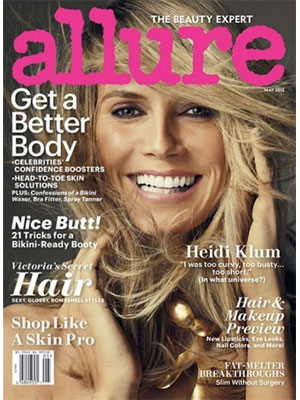Fragrance Dynasties - All in the Family
Fragrance Dynasties - All in the Family
Flankers (scent spin-offs) are easy to spot - just look for an adjective such as "intense" or "nior" on the bottle.
Excerpts from a fragrance editorial, The Descendants, in Allure Magazine, May 2012 issue.
All in the Family
The concept of fragrance "dynasties" can be extended to scents themselves. Successful perfumes often beget "flankers" (the industry's rather militaristic-sounding term for spin-offs). Flankers are easy to spot - just look for an adjective such as "intense" or "nior" on the bottle. Here, old favorites remixed just in time for summer. ...learn more
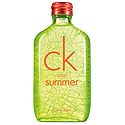
THE ORIGINAL: CK One THE LATEST: CK One Summer
What's The Same -- Its clean, citrusy, floral vibe.
What's New -- A surprising and energizing minty-herbal note.
What We Think -- Both fragrance are light, but Summer is cooler.
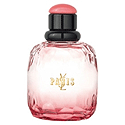
Yves Saint Laurent Paris Premieres Roses
THE ORIGINAL: YSL Paris THE LATEST: YSL Paris Premieres Roses
What's The Same -- It's violet-and-orange-blossom elegance.
What's New -- Less powder and an unmistable rose note.
What We Think -- It smells like the chicest, freshest floral bouquet you've ever recieved.

THE ORIGINAL: Vera Wang Princess THE LATEST: Vera Wang Princess Night
What's The Same -- Its youthful yet tasteful vanilla and floral notes.
What's New -- A hint of sugary musk and tart raspberry.
What We Think -- The musk adds a nice bit of sophistication.
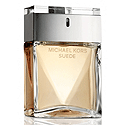
THE ORIGINAL: Michael Kors THE LATEST: Michael Kors Suede
What's The Same -- Its tuberose backbone.
What's New -- A musky, woodsy softness.
What We Think -- It has a seductive quality that isn't as apparent in the largely floral original.
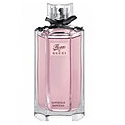
Flora by Gucci Gorgeous Gardenia
THE ORIGINAL: Flora by Gucci THE LATEST: Flora by Gucci Gorgeous Gardenia
What's The Same -- Not much, besides being a fruity floral.
What's New -- Way more sweetness, plus frangipani.
What We Think -- If true florals aren't your thing, its creamy, sugary quality might be appealing.

Thierry Mugler Angel Aqua Chic
THE ORIGINAL: Angel Thierry Mugler THE LATEST: Angel Aqua Chic
What's The Same -- Its gourmand (patchouli, caramel, vanilla) heart.
What's New - A hefty dose of zesty lemon.
What We Think -- If you think the original too cloying, this is a much lighter option.
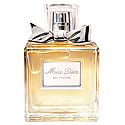
THE ORIGINAL: Miss Dior THE LATEST: Miss Dior Eau Fraiche
What's The Same -- Its ladylike citrus-and-floral charm.
What's New -- Even more citrus, plus plenty of green woodiness.
What We Think -- The original's cheeky caramel-popcorn note is much missed here.
The Descendants - Perfumers
When you grow up in a family of perfumers, just about every memory evokes a symphony of scent.
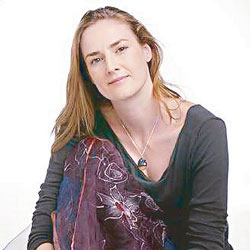
"I come from a long line of perfumers -- my grandfather, my father, an uncle," says Céline Ellena. "And what I remember best from my childhood are these tiny bottles all over my house in Grasse, which when I was little I had no right -- was strickly forbidden, in fact -- to open or even to touch."
Befor she was even old enough for school, the little girl who would grow up to be a successful perfumer in her own right would have been tempted by a whole verboten symphony of evocative ingredients -- jasmine, orchid, sandalwood -- which, blended, would become First, the fragrance her father, Jean-Claude Ellena, created for Van Cleef & Arpels, and the nascent woodsy scents of his Eau de Campagne for Sisley.
How was she supposed to leave those perfume bottles untouched? By the age of four, she was already sneaking sniffs -- and to this day, Ellena doesn't know if her passion for scent is in her DNA or acquired: "I was born in a family where I had not only the right, but the duty to smell. We would smell the food on the table before eating it. My father and grandfather would ask me to smell the odor of the earth," she recalls. "Smell it, it smells delicious," they told the young Celine. "Smell the pines, smell the humus."
She wasn't the only one growing up steeped in the evocative odors of the South of France. "When you live in Grasse, you are surrounded by truckloads of lavender, the perfume factories with their exotic smells," explains François Demachy, a perfumer for Dior, whose father, a pharmacist, created the cologne Eau de Grass Impériale for his customers. "The smell of fields of flowers, when I came home very early in the morning, that's a smell which I think of often," Demachy recalls. In fact, to this day he mixes jasmine and rose into his fragrances, "smells that remind me so vividly of my childhood."
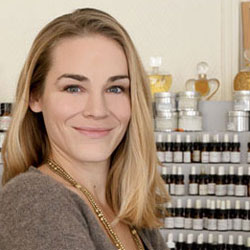
For some perfumers born into the business, these memories are even more domestic -- and intimate. As Patricia de Nicolaï, whose Guerlain family dominated French fragrance for decades, remembers it, her entire childhood was perfumed. "Every so often, a bottle of a Guerlain scent that hadn't even been finished would be dropped off at our house in Paris for my mother to try out," she recalls. "And around the house was had Guerlain's potpourri to scent the rooms: vanilla, sandalwood, and lavender. With us, it was simply part of the culture." Camille Goutal, whose beautiful mother, Annick (a dark-haired former model and pianist), started her own fragrance business, grew up in a similar millieu. "Ever since I was five, I was witness to my mother's profession, and I found the perfumes warming and welcoming," Goutal recalls. "I loved, even at that age, wearing her Eau d'Hadrien and Rose Absolue. In fact, my mother named her Eau de Camille after me."
Plenty of children follow in their parents' footsteps when choosing a vocation. But in the rarefield world of fragrance "noses," a family pedigree is nothing if not complicated. Ellena, Demachy, de Nicolai, and Goutal are just a few of the perfume progeny who have flourished in their industry despite their upbringings as well as because of them. Most were warned early on about the perils of perfuming -- costly ingredients, years of trial and error, lots of fierce and talented competition -- by relatives in the business, who peered into the future and didn't much like what they saw. (And with reason: "Now you get maybe 800 fragrances a year, and even a perfumer like me cannot recognize one from the other," says Frederic Malle, whose mother designed fragrances for Dior.) The female heirs especially found the path to perfume strewn with obstacles. "When I told my great-uncle, Jean-Pierre Guerlain, that I was interested in entering the fragrance world, he instantly replied, 'Oh, listen! You are going to get married and have children,'" de Nicolai recalls.
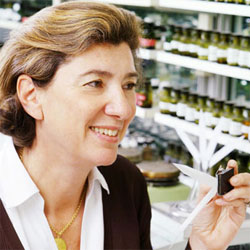
"Well," the creator of Patchouli Intense and Odalisque sums up with asperity, "too bad for him!" De Nicolai instead marched off to medical school. She had always loves chemistry; it seemed like a sensible alternative to the career denied her by her own family. And then one day, after her first year, she happened upon a tiny yellow brochure describing some école de parfumerie -- a perfume school she had never heard of that was founded, she discovered to her complete amazement, by a Guerlain great-uncle in 1970.
"It was like lightning through the brain, a bolt!" she recalls. She didn't have to be a doctor, she realized, and she didn't have to use her family connections to have a profession she loved. She could enroll in perfume school just like any ordinary scent civilian.
Always, the perfume heirs discovered, there were strong signs of promise and desire, early and significant ones -- even when they embraced other professions. Malle, the creator of Carnal Flower and Portrait of a Lady, was initially interested in photography and advertising. And yet certain fragrances continued to haunt him.
"When I was a discoes like Studio 54 in the late '70s and early '80s, I could tell every fragrance around me, distinguish each and every scent," Malle recalls. "I wore Halston Z-14, which had a woodsy, churchlike fragrance, and I thought I was very suave."

"I didn't think of becoming a perfumer at first -- well, because I didn't have a very good relationship with my mother," says Yves de Chiris, whose great-grandfather, Léon, hosted Queen Victoria at his villa (and sold her floral scents), and whose grandfather helped the great perfumer François Coty get started in the business. "She told me once when especially angry, 'You will never set foot in this house again!'" That seemed to quell his early fragrance ambitions for a while: De Chiris flew to New York City, where he worked on Wall Street. But not for long. [Read more: Yves de Chiris: Scented Heir to Chiris French Perfume Dynasty]
Indeed, none of the offsping managed to stay away from the scent bottle for long -- although it was not necessarily always desire that propelled them back. Sometimes, as a distraught Goutal discovered at 24, it was tragedy.
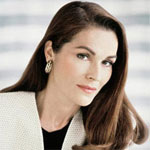
When the perfumer Annick Goutal died of breast cancer 12 years ago, Camille abruptly changed course. She was at the time a photographer and pregnant with her first child. "I decided the very idea of continuing what she started made me happy," she recalls. "And it was so easy for me, really easy." All her early life, young Camille had watched her mother working in her lab, fusing together the most delicious scents. "So I could imagine the perfumes in my mind -- the violets, the rose -- and put them together myself," she explains. Isabelle Doyen, her late mother's assistant, joined forces with Goutal, and the young perfumer quickly discovered that they shared the same tastes.
"We love the same smells, and we also hate the same smells," Goutal explains. "For example, we hate synthetic sandalwood and those strong synthetic scents that are highly floral. We know pretty well what works or not -- for example, the oriental perfumes are a bit tough to sell."
Last year, the two women focused on the forests of the United States, dark and lush, along with "the images that stayed with us from American movies like The Last of the Mohicans." Thus was born Nuit Étoilée, a fresh scent redolent of pine that will be out this spring.
In fact, all the heirs seem to paint any number of subjects -- great swaths of landscape, precious heirlooms, and, above all, naughty vices -- from a particular vivid, almost infinite palette of fragrances. Ask Caron's Richard Fraysse, whose father [Andre Fraysse] brought the world Arpège -- and his grandfather, Yardley's English Lavender -- about his favorite creations, and he will summon to mind, of all things, "the perfume which I created for Bob Marley, which I called Ganja. It only lasted eight months for financial reasons, but will always remain a treasured memory."
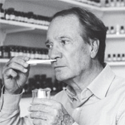
Or ask Olivier Creed, the sixth generation of Creed perfumers, about the process of scent creation, and he will wax poetic. "If one is creative and you love perfume, you can create it just as you might create jewelry or a beautiful piece of music or a painting," he says, with special emphasis on the last, because Creed was once a painter. Indeed: "It's even better to be a perfumer," he says, "because you constantly reinvent the product."
Nor, in the end, are the progeny especially unhappy about the years they spent in other lines of work. De Chiris, who moved seamlessly from Wall Street to the consumer product conglomerate Unilever, transferred his hard-earned business savvy, specifically recognizing the value of collaboration, to his new profession. "Now, Angel -- Thierry Mugler directed that fragrance," he remembers. "I gave him some scents and said, 'Talk to me.' It's absolutely fascinating how every odor evokes something good or bad. It's like therapy. And as Mugler kept talking, the picture of the fragrance was forming in my mind."
Mugler told de Chiris that his favorite childhood smell was the amusement park. Immediately, de Chiris recalls, the two invoked "the smells of cotton candy, cakes, chocolate, and that's how we came up with gay and sticky. And also: honey, caramel and marzipan." But the more the two men sniffed the blended scents, the more they thought something distinctive was lacking. "So we overloaded it with patchouli to dry it up a bit," says de Chiris. "And it acted like crushed ice in Grand Marnier."
He had, he says, figured out early on that "75 percent of the scents people like are flavor-related, but you, the consumer, don't always know they are flavor-related. It might be a clin d'oeil" -- a wink from the creator, he explains. "Oh, Chanel No. 5 has a lot of vanilla, but I bet you never smelled it! Trésor is gustatory: It has peach and prune. Often the perfumer hides it."
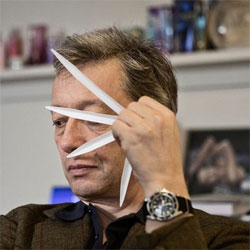
What else do the perfumer heirs prefer to hide? More often than not, their ambitions and hopes for the next generation. Whether they acknowledge it or not, many sound like their discouraging forbearers when talk turns to their own childred. "It's become a very rough business. In fact, it's full of fighting monsters," Malle says. But in the next breath, he adds: "My daughter Louise, who is 18, goes to medical school, but she did an internship with me last summer, and she was so good at it! It's annoying that she will probably become a very good doctor."
You're annoyed she's not headed for the fragrance world? Malle is asked.
"Yes," the perfumer replies. "But I keep that to myself."
(Guarnieri, Anne-Marie. "All in the Family." / Bachrach, Judy. "The Descendants." Allure May 2012: 253-255, 271)

